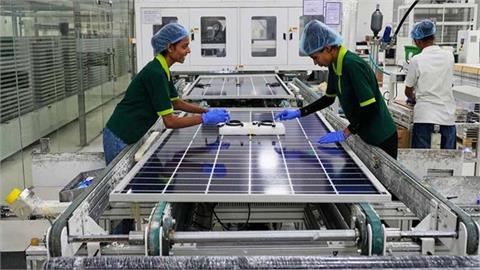by Leonid Bershidsky* As it accepted the resignation of Chief Executive Martin Winterkorn on Wednesday, the executive committee of Volkswagen's supervisory board praised his "towering contributions" to the company that stands to lose much of its $37 billion cash stash making amends for major fraud committed on Winterkorn's watch. Such graciousness is a German tradition, and it raises the question whether there's something fundamentally wrong with the country's corporate establishment
by
Leonid Bershidsky*
As it accepted the resignation of Chief Executive Martin Winterkorn on Wednesday, the executive committee of Volkswagen's supervisory board praised his "towering contributions" to the company that stands to lose much of its $37 billion cash stash making amends for major fraud committed on Winterkorn's watch. Such graciousness is a German tradition, and it raises the question whether there's something fundamentally wrong with the country's corporate establishment.
In its statement, the committee declares as fact that Winterkorn "had no knowledge of the manipulation of emissions data." There was no way to establish that in the short time since VW's use of special software to cheat emissions tests came to light. The board, which in April backed Winterkorn in a battle with company patriarch Ferdinand Piech, must have taken the chief executive's world for it. That is amazing leniency on the part of a group of people charged with looking out for shareholders' interests, given that VW's stock is down 28 percent since September 18.
There's nothing unusual about it, though. When Anshu Jain stepped down as co-chief executive of Deutsche Bank in June, the bank's stock price was down 17 percent from this year's high in April, dogged by continuing heavy fines for all sorts of past misdeeds -- many committed on Jain's watch -- and a helpless restructuring plan he had proposed. Yet Paul Achleitner, chairman of Deutsche's supervisory board, expressed his appreciation for the contribution of Jain and the other co-chief executive, Juergen Fitschen, who is leaving at the end of this year, in almost the same words the VW board used for Winterkorn.
In 2013, the supervisory board of Siemens, Germany's fifth biggest company by revenue, announced the resignation of Peter Loescher, whose time as chief executive was marked by costly delays in important projects and woeful strategic errors, noting that "Under his leadership, the company achieved a substantially higher level of performance and profitability." Loescher was credited with cleaning up Siemens after the company was caught bribing officials in a number of countries to land contracts. That scandal was the undoing of his predecessor Klaus Kleinfeld, who was seen off with the message that thanks to his leadership, "Siemens is in better condition than ever before."
This is not a question of decorum. It may be that malfeasance of the kind seen at VW, Deutsche Bank and Siemens over the years, as well as a lack of executive responsibility for it -- beyond the nuisance of having to resign and be sorely missed -- is built into the German corporate governance system.
This system is distinctive in that it recognizes the interests of more than just the shareholders. Other stakeholders, such as workers, local governments and often creditors are represented on supervisory boards. In accordance with German law, half of Volkswagen's board consists of employee representatives elected by the workforce. Besides, two of the board's 20 members are delegated by the state of Lower Saxony. Votes by the workers and the local bureaucrats secured Winterkorn's boardroom triumph in April. Workers' representatives, including labor union leaders, take up half the seats on the boards of Siemens and Deutsche Bank, too.
This is called "co-determination." The term has more to it, though, than joint decision-making. As a result, employees' and other stakeholders' interests become closely aligned with those of management. There's a strong esprit de corps, which isn't necessarily conducive to a clean, value-based culture. In a recent paper, the University of Michigan's David Hess recalled the Siemens bribery scandal:
"Although the German laws had changed to make it clear that bribing foreign government officials was illegal, the company continued to pay bribes because, as one manager stated, employees believed they had to pay them or else 'we’d ruin the company.' "
It is a feature of every scandal that it is followed by promises of a clean-up. VW has promised "full consequences" for employees found guilty of wrongdoing. Deutsche Bank and Siemens created elaborate anti-corruption programs. Whether they are effective is another matter. Deutsche Bank is now scaling back its Russian business following investigations into benchmark fixing and money laundering on behalf of Russian clients. Siemens still faces repercussions from the old bribery scandal in countries from Brazil to Israel to Greece.
No wonder it often takes intervention from foreign authorities to uncover wrongdoing by German corporations. In the cases of VW and Siemens, U.S. probes led to the damaging revelations. At Deutsche Bank, shady practices might have continued but for the attention of financial regulators in the U.S. and the U.K. German corporations are inclusive but, in part because of that, closed systems: They keep stakeholders happy, but when outsiders ruin the cozy atmosphere, shareholder returns tend to plummet and the consequences are spread over many years.
Chancellor Angela Merkel, who has run Germany for the last decade, has done a lot to turn it into a values-based society. It's easy to attack German corporations from that point of view. "Valuable cars can only be built if values matter in a company," Heribert Prantl wrote in a Sueddeutssche Zeitung column criticizing Volkswagen for letting Winterkorn get off so lightly. "The big question now is when VW will be valuable again. A resignation is not enough here."
The German corporate establishment is out of step with a society that is actively atoning for its 20th century sins. If it cannot cleanse itself, perhaps changes are needed to the corporate governance system to give investors a bigger role and give other stakeholders a stronger voice.
*Leonid Bershidsky is a Bloomberg View columnist. He is a Berlin-based writer, author of three novels and two nonfiction books.
(Bloomberg View, 24 Sept., 2014)




